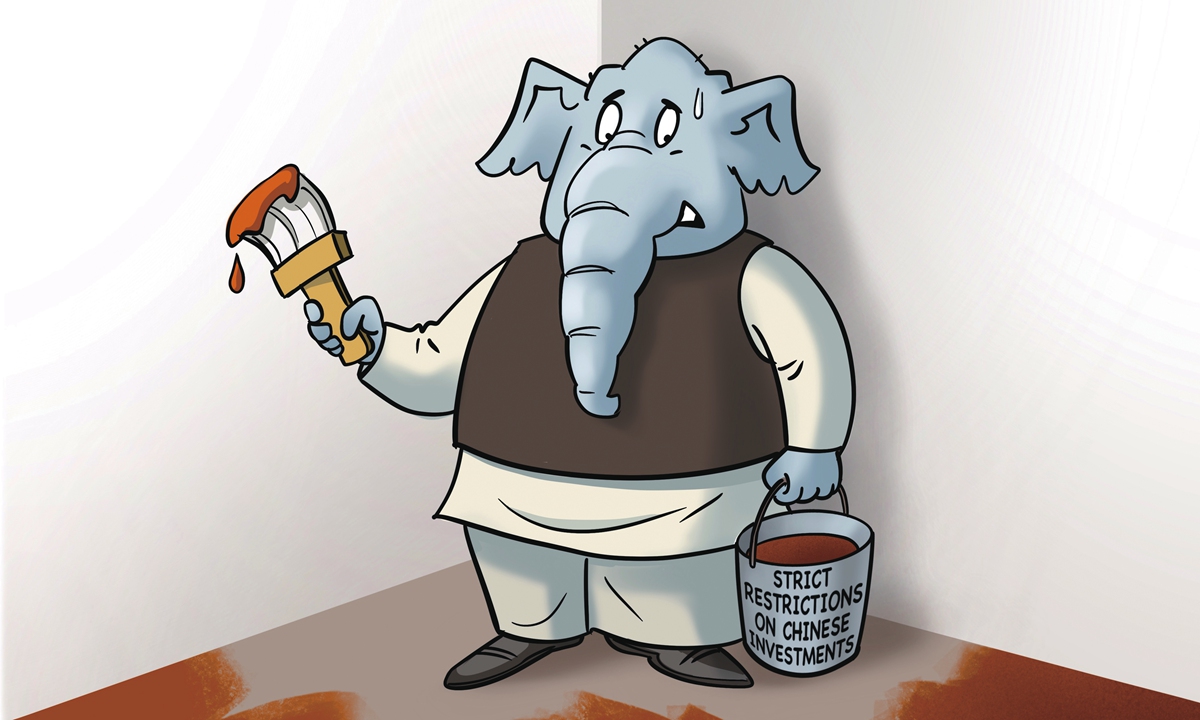
| PANDEMIC ALERT LEVEL |
| 123456 |
| Mpox Discussion Forum: Latest News & Information Regarding the Clade 1b Mpox Virus |
Post Reply - trade war |
| Post Reply |
| Message |
| Topic - trade war Posted: 09 Apr 2025 at 5:28am By Dutch Josh 2 |
|
https://www.globaltimes.cn/page/202504/1331683.shtml or https://www.globaltimes.cn/page/202504/1331683.shtml ;
Attempting to displace China in global supply chain a double-edged sword for India  Illustration: Liu Rui/GT In recent years, India has maintained strict restrictions on Chinese investments, a trend that seems unlikely to change anytime soon. According to a recent report in The Times of India, the Indian government is unlikely to ease checks on investments from China despite growing calls to review the foreign direct investment norms. This reluctance stems from India's wariness of capital flows from across the border, heightened by the trade war between the US and China. Under the Trump administration, the US-imposed tariffs on Chinese goods have further reinforced India's concerns about the growing influence of Chinese companies. At the same time, India appears determined to take advantage of the tariffs imposed on China by attracting foreign investors to relocate their supply chains to India. This strategy is part of India's broader objective to reduce its dependence on Chinese imports, foster its domestic manufacturing sector and establish itself as a key player in the global supply chain. While such ambitions may seem logical, their execution has been problematic. The increasing scrutiny and restrictions on Chinese companies, coupled with attempts to position India as an alternative to China, have created a highly antagonistic business environment that harms both sides. It is essential to understand that, no matter how actively India attempts to lure foreign investment, its manufacturing industries remain heavily reliant on China's advanced supply chain and technology base. China has spent decades building an unrivaled manufacturing ecosystem characterized by scale, efficiency and expertise. Therefore, India's strategy of unfairly targeting Chinese investments and attempting to displace China in the global supply chain is a double-edged sword. India's scrutiny of Chinese companies has often been justified in the name of national security; however, it has created significant disruptions that ripple through its own economy. The ban on various Chinese mobile apps and the targeting of Chinese tech companies, for example, have deprived Indian consumers of high-quality, affordable products while reducing market competition. In its efforts to establish manufacturing independence, India continues to depend on the resources, technology and expertise it seeks to displace. As foreign companies look to relocate their factories to India, they remain deeply reliant on the upstream technology and components supplied by Chinese manufacturers. Senior engineers and technical specialists, many of whom have been trained in China or work with Chinese firms, are essential to ensuring the success of these relocation projects. If India wishes to become a global manufacturing hub, it must re-evaluate its current policies toward Chinese investments and businesses. A policy of exclusion not only harms bilateral economic relations but also undermines India's own goals of improving its global competitiveness. Creating a hostile environment for Chinese companies sends the wrong message to foreign investors who benefit from China's supply chain efficiency and technological resources. By making India aware of its dependence on Chinese supply chains, China can encourage India to adopt a more pragmatic and cooperative stance. Both nations can realize their fullest economic potential only by shifting toward partnership rather than opposition. |